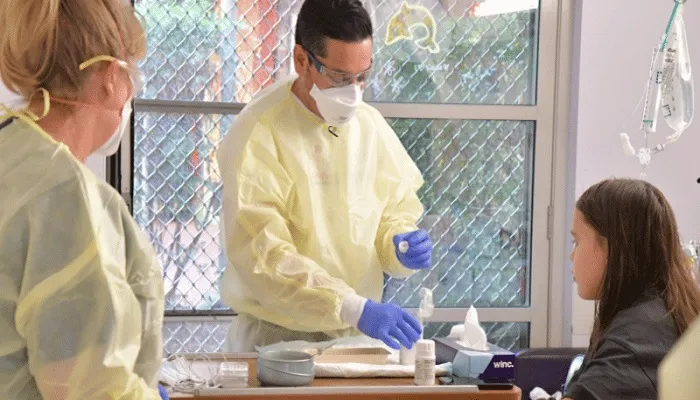In a groundbreaking development, clinical trials for the world’s first-ever “tooth regrowth medicine” are scheduled to begin in September at Kyoto University Hospital. This innovative treatment promises to help patients with congenital tooth deficiencies, and researchers aim to make the medicine available to the public by 2030. The news marks a major step forward in dental science, potentially offering a solution for those who have long struggled with missing teeth.
The clinical trials will start in September 2025, and they will initially focus on proving the safety of the new medication. Once its safety is confirmed, researchers will then move on to testing its effectiveness on patients who are born without a full set of teeth. This approach aims to provide a solution for individuals who have congenital tooth deficiencies, which affects a small percentage of the population.
Congenital tooth deficiency is estimated to impact about 1% of people globally. More specifically, oligodontia, a condition in which individuals are missing six or more teeth, is believed to affect approximately 0.1% of the population. This condition is usually hereditary, making it particularly difficult for those who are affected.
According to researchers at Kitano Hospital in Osaka, the first phase of the trials will run from September 2025 to August 2025. During this period, the medication will be tested on 30 healthy male volunteers between the ages of 30 and 64. The goal is to observe the effects of the medicine on tooth regrowth by administering it intravenously to individuals who are missing at least one back tooth. The idea is to ensure that, if the medicine proves effective, there will be no issues with tooth growth where it is intended. So far, animal studies have not revealed any significant side effects from the treatment.
Following the initial phase of trials, the research team plans to begin a second phase, where the medication will be administered to patients with congenital tooth deficiencies. This stage will focus on young children, aged between 2 and 7, who have been missing at least four teeth since birth. Researchers hope that this phase will offer valuable insights into the medicine’s ability to stimulate tooth growth in people with a genetic predisposition for tooth loss.
The breakthrough medicine works by deactivating a protein called USAG-1. This protein is known to inhibit tooth growth, so by deactivating it, the treatment could potentially trigger the regrowth of teeth. Researchers are hopeful that this treatment could not only help those with congenital conditions but also be applied to people who have lost teeth due to cavities, injuries, or other factors.
Katsu Takahashi, the lead researcher and head of the dentistry and oral surgery department at Kitano Hospital, emphasized the potential of the medicine to offer a permanent solution for tooth loss. Takahashi expressed a deep desire to help those suffering from tooth loss, stating, “We want to do something to help those who are suffering from tooth loss or absence. While there has been no treatment to date providing a permanent cure, we feel that people’s expectations for tooth growth are high.”
The development of this tooth regrowth medicine is seen as a monumental step forward in the field of dental care. If successful, it could revolutionize the way we approach tooth loss, offering a potential alternative to traditional dental implants and prosthetics. The team behind the project is optimistic that in the future, the medicine may even help people grow new teeth after losing them due to injury or other causes.
With the start of clinical trials for the world’s first tooth regrowth medicine, hope is on the horizon for millions of people with missing teeth, especially those with congenital conditions. Researchers are optimistic about the potential of this treatment to provide a permanent solution to tooth loss. If successful, this could change the landscape of dental care forever, offering an alternative to traditional treatments and improving the quality of life for those suffering from tooth loss.
Related topics:

